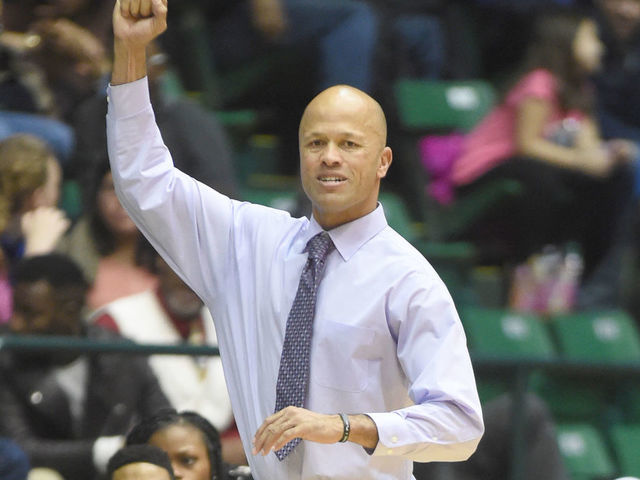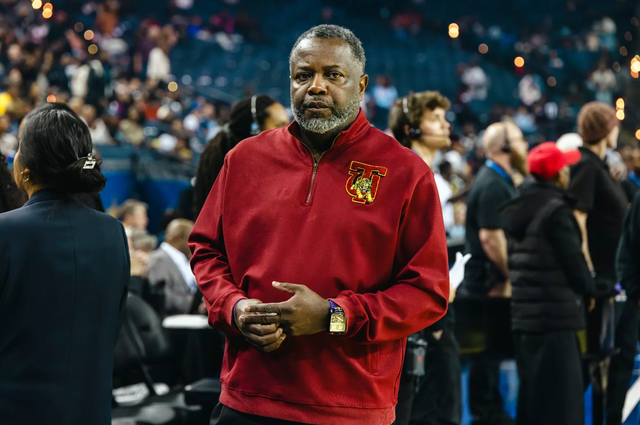Greetings to the ladies of Zeta Phi Beta Sorority, Incorporated.
Greetings to the ladies of Sigma Gamma Rho Sorority, Incorporated.
Greetings to the men of Alpha Phi Alpha Fraternity, Incorporated.
Greetings to the men of Kappa Alpha Psi Fraternity, Incorporated.
Greetings to the men of Phi Beta Sigma Fraternity, Incorporated.
Greetings to the men of Iota Phi Theta Fraternity, Incorporated.
Greetings to the “Sons of Blood and Thunder,” the men of Omega Psi Phi Fraternity, Incorporated.
And my warmest greetings to my Sorors,
the Dynamic Divas who wear the Delta symbol, the ladies of Delta Sigma Theta Sorority, Incorporated.
It is my pleasure to offer you an introduction to the nine Black Greek-Lettered Organizations (BGLO), dubbed the “Divine Nine.” These black fraternal groups first emerged shortly after the turn of the twentieth century to help black college students, who W.E.B. Du Du Bois famously dubbed the Talented Tenth survive the racially hostile environment of daily life as blacks in America which even educated, middle and professional class blacks could not escape.

By May 1930, Omega Psi Phi and Kappa Alpha Psi Fraternities and Alpha Kappa Alpha, Delta Sigma Theta and Zeta Phi Beta Sororities recognized the need for “unanimity of thought and action” among Black Greek letter organizations. These organizations served as the charter members of the National Pan-Hellenic Council and were joined the following year by Alpha Phi Alpha and Phi Beta Sigma Fraternities. Sigma Gamma Rho joined in 1937 and Iota Phi Theta Fraternity completed the list of member organizations in 1997.
I’ve set my sights on a noble but admittedly lesser goal of introducing to some and presenting for reexamination to others, a few of the most popularly shared practices of Black Greek-Lettered Organizations. It is not intended to be definitive in nature. Instead, it explores the history, application and transformation of some of the most beloved traditions in the black fraternal experience.
Believe it or not we’ve already shared one of the Divine Nine community’s most beloved traditions, that of the call. At any public gathering of BGLO members, it is not uncommon to hear vocal utterances, either words or sounds. These calls are not only coined for use by their respective organizations, but distinctive to each BGLO affiliation. Its common usage is in the call-and-response style so familiar with the African-American church tradition. Similarly, a call is begun by one member or members who are joined by other members with the same or a responding call.
The origins of these calls however, stretch back to the continent of Africa where, calls were used to communicate one’s location most often over long distances. Once enslaved in the Americas, Africans continued to use their call-and-response traditions to communicate with each other, protect themselves from danger and to express emotion. In the fields, they’d often sing out in songs in the call-and-response tradition to ease the pain associated with the harsh labor conditions they endured, while carrying out their daily tasks. But once slavery ended, it diminished the value of call-and-response tradition in the everyday black experience and northern blacks often looked at the tradition with scorn. The same is true of some BGLO members, who frown on the practice of calls, since they are “unofficial” practices in some Black Greek-Lettered Organizations. Like hand signs, whether official or unofficial, calls serve as an integral part of the black fraternal experience and as such should not be used by non-members to fake membership. It is not only looked at unfavorably, but it viewed as an affront to BGLO members.
Just as calls have their origin on the continent of Africa, the practice of branding, most popular among black Greek letter fraternities, are purported to have roots in African scarification rituals. Others claim that the practice is connected to cattle branding and slavery; and others still, claim that the practice was popularized during times of war as a means to identify the bodies of black servicemen. And herein lies the paradox of the ritual. As a practice often unrecognized by BGLO national governing bodies, branding, while widely practiced by some, is scorned by others, leading to a general lack of consensus about its function in the black fraternal community. But as Marcella L. McCoy observed, “a ritual is an act to which someone gives meaning, emotion, and order but that may seem insignificant to others.”
One shared ritual over which there is little debate is the syncopated, percussive rhythms that emerge from the marriage of precise and stylized movements of the body capture the audio and visual imaginations of observers. This art is dubbed stepping. “Frequently coupled with songs, chants, and verbal calls,” Carol D. Branch describes stepping as “a vibrant performance that has been shaped by the experiences of blacks, yet continues to evolve.” Generally performed in groups, stepping helps maintain the social cohesiveness of the black fraternal community. The practice’s origins are also African, and can boast roots in the call-and-response tradition as well as in games played by Congo children and in the gum-boot dancers of South African mines. Historians of Phi Beta Sigma contend that its member Kwame Nkrumah, first prime and later president of Ghana, introduced the heavy West African influence on BGLO stepping as well as the cane, although I am certain that the men of Kappa Alpha Psi would invite a healthy debate over the introduction of the cane to the black fraternal tradition.
It is difficult, if not impossible however, to draw a straight line from African traditions to supposed manifestations in black fraternal life. Yet, as Alpha Phi Alpha member W.E.B. Du Bois in his 1908 publication The Negro Family, pointedly asserted:
[quote_box_center]”In each case an attempt has been made to connect present conditions with the African past. This is not because Negro Americans are Africans, or can trace an unbroken social history from Africa, but because there is a distinct nexus between Africa and America, through broken and perverted, is nevertheless not to be neglected.”[/quote_box_center]
Head over to HBCUStory.com to read more.
Like HBCU Buzz on Facebook. Follow us on Twitter.



